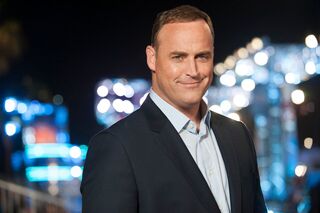Adolescence
More Roots of Success: Focus, Respect, Unselfishness
Life lessons from teen athletes on their way to stellar success and excellence.
Posted November 28, 2022 Reviewed by Davia Sills
Key points
- A team-first approach characterized these successful people when they were teenagers as it does today in their careers.
- Respect for teammates and other people led to their success in youth athletics and in their later careers.
- Successful leaders like these individuals often have a history of shunning personal glory and popularity seeking in their youth.
You never know what’s in store for the young people that pass through your life on their way to the future. Or maybe you do.
A previous Sports Between the Ears post, "The Roots of Success: Humility, Curiosity, Purpose," discussed a few young people who crossed my path on their way to success. Humility, growth mindset, and purpose characterized the successful people mentioned in that article from the time they were kids.
It would be remiss not to examine the pre-adult character of other successful people that passed through my life as youth athletes. Knowing about that could help shape the lives of the young people in your life.
How did I know the people discussed herein? From my experience as a young athlete, baseball coach, and sports administrator. None of them were psychology clients, nor am I claiming credit for their success.
Common Denominator
What did these high achievers have in common as young people in addition to sports participation? Single-minded focus and effort, respectfulness for teammates and adults, and a prioritization of team achievement, not self-centered attention seeking, social approval, or personal glory.
Respectful, Unpretentious Military School Teammate
My first recollection of extraordinary youthful character was at Culver Military Academy (CMA) in Indiana, pitching summer baseball in the mid-1960s. Scott Gillogly was a 13-year-old teammate and catcher tasked with the unenviable chore of handling this author and his pitches.
Scott was always positive, composed, and played hard. What stood out most was the respect and kindness he demonstrated to everyone, be it coaches, starters, bench players, and even me.
Everyone at Culver appeared to like and respect Scott, but what mystified me was why he wasn’t part of the cool kids' group and didn’t seem much interested in hanging out with them. Didn’t everybody want to be in the cool-kid brigade?
Apparently not. Scott was friendly with the “popular” guys but didn’t seem obsessed with the cool kids as so many teenagers are.
At the time, I attributed Scott’s behavior to shyness, but I later realized his actions were likely guided by a different focus than the pursuit of attention and popularity. That conclusion is based on later observations of other kids who displayed similar behavior. Some kids just do not crave or thrive on popularity or attention as so many other young people do.
Scott and other kids of his ilk were focused on improving, competing as a team, and supporting their teammates. They were unpretentious and unselfish. It wasn’t about attention and glory.
Gillogly went on to quarterback and captain the Army football team in 1975. He graduated from Duke Medical School and established a distinguished career as an orthopedic surgeon, including stints as team doctor for the Atlanta Thrashers (now the Winnipeg Jets) hockey team and the Atlanta Falcons and Braves.

Wall Street Leader
Another unpretentious, respectful kid who crossed my path is John Waldron, a youth athlete back in the late 1970s/early 1980s in Shaker Heights, Ohio. Waldron grew up to be president of Wall Street giant Goldman Sachs. John was another determined, respectful, reserved young teenager who may have appeared shy to some.
“I played baseball, ice hockey, and a lot of tennis, and I was pretty single-minded as a kid, trying to figure out how I could always improve and be the best that I could be,” Waldron reflected in a recent interview for this article.
“Enormous amount of focus," continued Waldron. "That’s the first characteristic that I remember and is reflective of how I carry myself today. I wasn’t overly social on my teams. I had good friends, and I was a good teammate, but I was single-minded, trying to get better and putting in the effort. I wanted to focus on my performance and was not socially focused like so many kids.
“Looking back, I definitely disliked the peacock phenomenon of some of the kids,” explained Waldron. “The ‘look at me, look at me’ kids. I didn’t like the kids that were all about ‘what are my stats? I don’t care if we win or lose. I got my three hits or two goals, so it’s all good.’ I was much more focused on winning and improving.”
That “peacock phenomenon” is common in today’s youth culture. Many kids and their parents are more interested in selfish pursuits, such as statistics, awards, playing time, athletic scholarships, etc., instead of the team.
“I had a deep desire to be good and be really important to my team, not a desire to be a star,” Waldon elaborated. “I was focused on the team, high performance, reliability, and always trying to get better. I am now president of my firm and fortunate enough to be in a leadership position, but I always strove and cared about being a leader and a super relevant contributor to whatever I was doing.”

Jack and Master of All Trades
Most know the guy pictured here as the host of American Ninja Warrior. I knew Matt Iseman as a student-athlete in the Cherry Creek Schools, located in suburban Denver, Colorado. He entertained way back then with a humorous persona, just like now as a television host and comedian.
Iseman’s life story is fairy-tale stuff. He’s a two-time Ivy League graduate playing college baseball at Princeton before completing medical school at Columbia University. Iseman was a practicing physician for a brief time before pursuing show business.
Two Ivy League diplomas, college baseball, a physician, a comedian, and the host of a major TV show. Everything Iseman touches turns to gold. How does somebody achieve success at so many different things?
“I think I had pretty big goals,” Iseman reflected during an interview for this piece. “Having a clear goal really helps when you’re struggling with the hard work, or if you’re wondering, ‘Should I go out, or should I do this or that.’ If you have some higher purpose—some big goals—it makes it a lot easier to make the right choice for the future.”
Making life choices is a mental tug-of-war for everyone. Iseman’s transition from a medical career to show business is a case in point.
“The hardest thing I’ve ever done was getting through medical school, and I was so proud of that,” shared Iseman. “I got into medicine and thought it was the perfect job for me. On paper, I love science and love the idea of helping people, but you realize you don’t live your life on paper, and as much as I loved the intellectual challenge, I didn’t feel like my heart was into it (medicine).”
Leaving medicine was a difficult decision, but thanks to encouragement from his father, a prominent physician in Denver, the transition to show business happened. “My dad told me, ‘Life is short, do what makes you happy,’ and I came out to Hollywood.
“I found what I really love to do—and that’s performative—doing stand-up comedy and hosting TV,” Iseman said. “I got some early breaks, but it took a long time. I’ve been here for over 20 years, and I know the success is from a lot of hard work and everything I did before—sports, school, medicine—that helped me become the person I am today.

“I look back on sports and how much that shaped who I am because I feel sport teaches the lessons of life,” Iseman explained. “One of the things I love about sports was the camaraderie. I just love being in a team element and love the idea of elevating each other, and being there for friends, and having those friends being there for you.”
That commitment to teamwork continues in Iseman’s entertainment career.
“In all the entertainment projects I do, I try to be the best collaborator I can,” Iseman said. “If I can help you be better, you could do the same for me. We can be elevated together, be greater than the sum of our parts.
“That’s something I learned in sports,” Iseman continued. “I really love the idea of doing well as a team. There are some people who are, like, ‘it’s all about my individual statistics. It’s about showing people how good I am.’”
“The great players were the ones who said, ‘the bottom line is, win or lose, we do it together as a team,’” Iseman elaborated. “When you talk about glory, it’s not individual glory, it’s the glory of ‘hey, we won. We did something very hard; we worked for it.’ That’s one of the things that I loved about sports.”
Formula for Success
Single-minded goals, respect for others, disdain for that selfish, glory-hound attitude, and a team-first approach. If all that’s good enough for successful people like Scott Gillogly, John Waldron, and Matt Iseman, It’s good enough for the rest of us.




